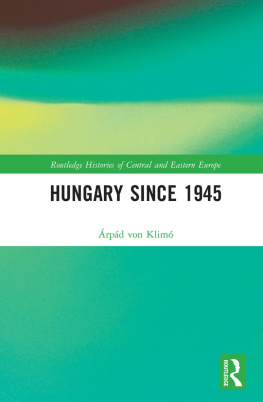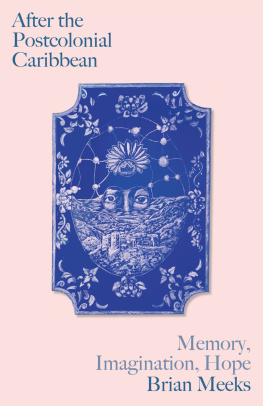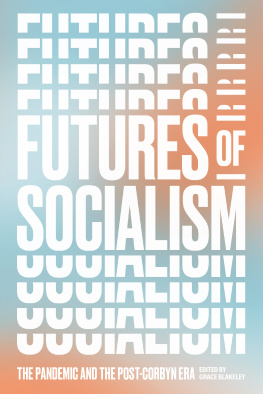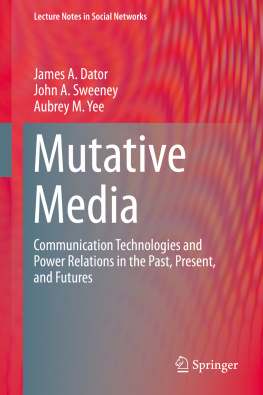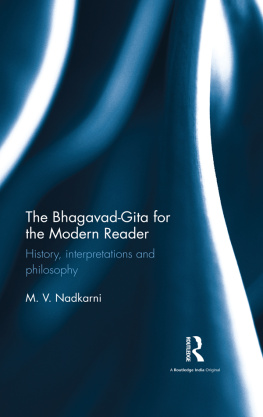Maya Nadkarni - Remains of Socialism: Memory and the Futures of the Past in Postsocialist Hungary
Here you can read online Maya Nadkarni - Remains of Socialism: Memory and the Futures of the Past in Postsocialist Hungary full text of the book (entire story) in english for free. Download pdf and epub, get meaning, cover and reviews about this ebook. year: 2020, publisher: Cornell University Press, genre: Politics. Description of the work, (preface) as well as reviews are available. Best literature library LitArk.com created for fans of good reading and offers a wide selection of genres:
Romance novel
Science fiction
Adventure
Detective
Science
History
Home and family
Prose
Art
Politics
Computer
Non-fiction
Religion
Business
Children
Humor
Choose a favorite category and find really read worthwhile books. Enjoy immersion in the world of imagination, feel the emotions of the characters or learn something new for yourself, make an fascinating discovery.

- Book:Remains of Socialism: Memory and the Futures of the Past in Postsocialist Hungary
- Author:
- Publisher:Cornell University Press
- Genre:
- Year:2020
- Rating:4 / 5
- Favourites:Add to favourites
- Your mark:
- 80
- 1
- 2
- 3
- 4
- 5
Remains of Socialism: Memory and the Futures of the Past in Postsocialist Hungary: summary, description and annotation
We offer to read an annotation, description, summary or preface (depends on what the author of the book "Remains of Socialism: Memory and the Futures of the Past in Postsocialist Hungary" wrote himself). If you haven't found the necessary information about the book — write in the comments, we will try to find it.
Maya Nadkarni: author's other books
Who wrote Remains of Socialism: Memory and the Futures of the Past in Postsocialist Hungary? Find out the surname, the name of the author of the book and a list of all author's works by series.
Remains of Socialism: Memory and the Futures of the Past in Postsocialist Hungary — read online for free the complete book (whole text) full work
Below is the text of the book, divided by pages. System saving the place of the last page read, allows you to conveniently read the book "Remains of Socialism: Memory and the Futures of the Past in Postsocialist Hungary" online for free, without having to search again every time where you left off. Put a bookmark, and you can go to the page where you finished reading at any time.
Font size:
Interval:
Bookmark:
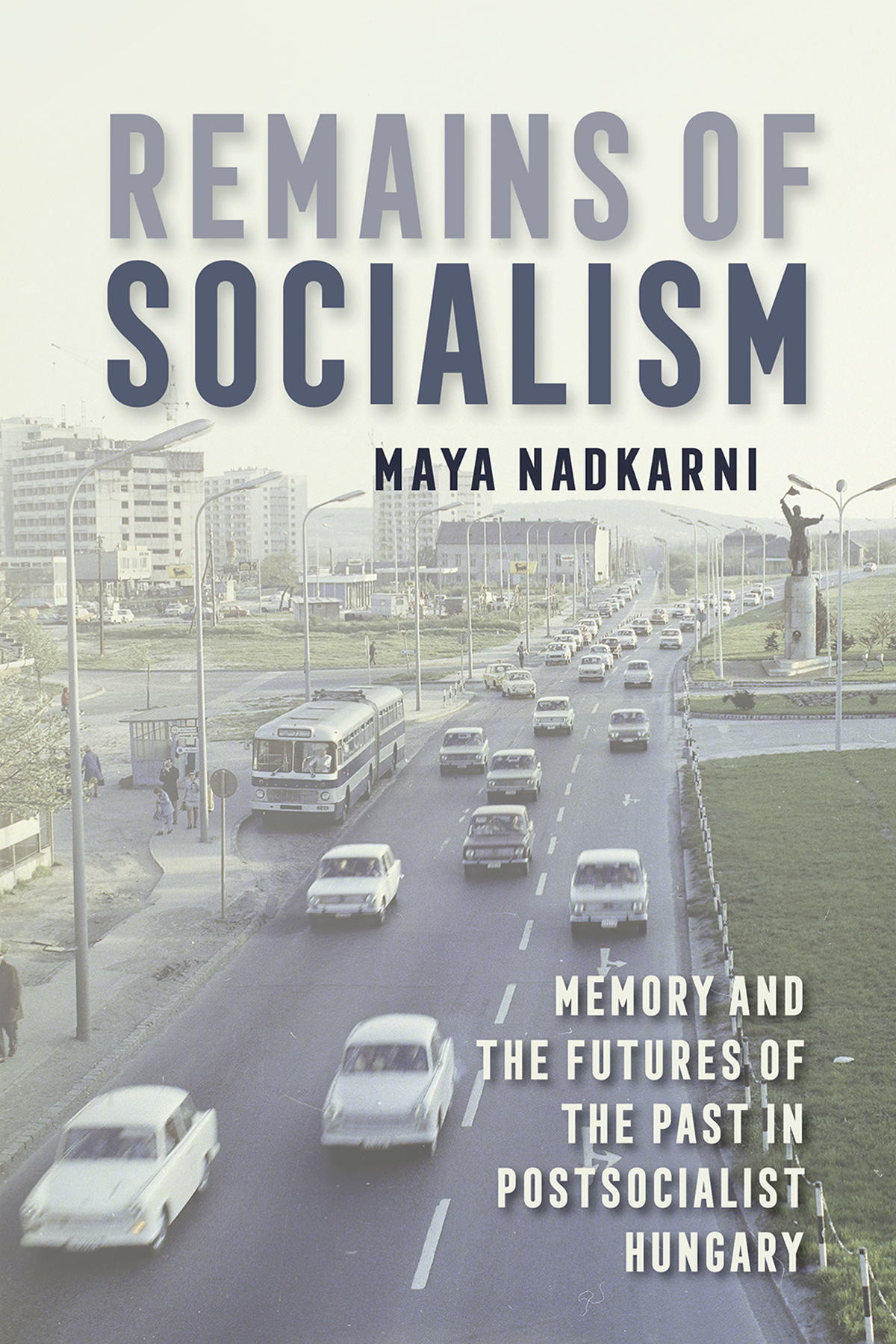
REMAINS OF SOCIALISM
Memory and the Futures of the Past in Postsocialist Hungary
Maya Nadkarni
CORNELL UNIVERSITY PRESSITHACA AND LONDON
To my parents, Ravindra and Sara Nadkarni
And my sisters, Neela and Asha Nadkarni
National spring cleaning! MDF campaign poster.
Interior of Marxim restaurant.
Monuments to the Buda Volunteers Regiment Memorial, Captain Ilya Afanasyevich Ostapenko, and Captain Mikls Steinmetz at Memento Park.
Lenin statue at Memento Park.
Three monuments from the Endless Parade of Liberation Monuments at Memento Park.
Statue of Imre Nagy at Martyrs Square.
Film still from Dolly Birds.
Interior of Cha-cha-cha Eszpressz.
Bookstore display advertising Rainbow Department Store.
Exterior of House of Terror museum.
Everyday Life room at the House of Terror.
Interior of Terv Eszpressz.
Exhibition at the Petfi Csarnok commemorating everyday life during 1956.
I have amassed countless personal and intellectual debts over the years of researching and writing this book. At Columbia University, I benefited from the intellectual inspiration and professional guidance of Marilyn Ivy, Claudio Lomnitz, John Pemberton, Carol Rounds, and Michael Taussig. I am particularly grateful to my dissertation advisor Rosalind C. Morris, whose scholarship, mentorship, and warm and incisive feedback set a very high standard for me to follow. And while my undergraduate mentors at Harvard Universitythe late Mary Steedly, Richard Rogers, and Robert Gardnercould not have anticipated the directions my research would take, I nonetheless am thankful to them for starting me on this path.
I have been very fortunate to find such a vibrant and congenial academic home in the Department of Sociology and Anthropology at Swarthmore College. I am grateful to all the past and present members of the department with whom I have had the honor to work over the years, particularly those who as chairs or colleagues helped to nurture this project or offered astute readings of portions of my manuscript: Farha Ghannam, Sarah Willie-LeBreton, Lee Smithey, Braulio Muoz, and Christy Schuetze. Outside the department, more colleagues than I can list have offered insight and encouragement, but I am particularly grateful for conversations with the Mellon Tri-Co Brainstorming group on nostalgia (Farid Azfar, Sibelan Forrester, Tamsin Lorraine, Sangina Patnaik, and Zainab Saleh). I also thank Osman Balkan, Stacey Hogge, Rose Maio, Robert Rehak, Robert Weinberg, Patricia White, my colleagues in the Interpretation Theory program, and any others whose names I may have inadvertently omitted. Finally, the energy and intelligence of Swarthmore students are an endless source of inspiration to me. The lessons I have learned from teaching and mentoring undergraduates have made me a better scholar and writer, and I especially thank all those whose questions and enthusiasm in various iterations of my course Memory, History, Nation inspired me to reformulate some of the arguments in this book.
For reasons of privacy, I cannot name everyone in Hungary whose assistance is visible on these pages. But I extend my deepest appreciation to all those who opened up their lives and thoughts to me, or who otherwise helped me over the years: whether by sharing contacts, offering insight into the intricacies of Hungarian, securing access to archives and helping me locate documents, or providing perspective, criticism, and advice on my ever-evolving project. I am especially indebted to those interview subjects who agreed to speak on the record with me: Balzs Bod, kos Eled, Sndor Holbok, Edit Kiss, kos Rthly, Andrs Szilgyi, Gyula Thrmer, and Attila Vajnai. I also wish to express my gratitude to the staffs of the Fulbright Commission in Budapest, the former Magyar Millennium Commission, the former Country Image Center, the library at Parliament, the Open Society Archives, and the archives of the Budapest General Assembly for their assistance, as well as the Hungarian Film Union for loaning me copies of recent Hungarian films and ensuring me free access to Hungarys yearly film festival during the initial years of my fieldwork. And I am thankful for the support and insight of many friends and colleagues during my years of fieldwork, including Kristin Faurest, Kriszta Feny, Gyrgy Horvth, John Nadler, Pl Nyri, and Veronika Rnai. I am especially grateful to dm Tolnay, his Learning Enterprises project that brought me to Hungary as an English teacher in 1993 and 1999, and the friendship and hospitality of my host families.
In addition, I would like to thank a number of senior scholars of the region who kindly offered their feedback or advice at various points during the long trajectory of this project, including Csaba Bks, Andrs Bozki, Istvn Dek, Bruce Grant, Pter Gyrgy, Gail Kligman, Lszl Krti, Katalin Miklssy, Istvn Rv, Katherine Verdery, and Alexei Yurchak. Special thanks to several Hungarianist colleaguesKrisztina Fehrvry, Zsuzsa Gille, and Martha Lamplandwho have been both scholarly inspiration and cherished interlocutors over the years. This book has also benefited greatly from conversations with Paulina Bren, Richard Esbenshade, Kristen Ghodsee, Jessica Greenberg, Krista Harper, Jason James, Csilla Kalocsai, Larisa Kurtovi, Jessie Labov, Marikay McCabe, Andrs Mink, Jason Moralee, Serguei Oushakine, Michael Reay, Zsfia Rti, Olga Shevchenko, Stefan Siegel, Aniko Szucs, and Marko ivkovi. My friend Jzsef Litkei in particular has been unfailingly generous with his scholarly and editorial expertise. Thank you all for your feedback and support; any errors are of course mine alone.
Initial research for this project was funded by a Foreign Language and Area Studies language training grant, a Faculty Fellowship from Columbia University, a Fulbright IIE fellowship, a National Science Foundation Graduate Fellowship, a fellowship from the International Dissertation Field Research Fellowship Program of the Social Science Research Council with funds provided by the Andrew W. Mellon Foundation, and an East European Studies Dissertation Fellowship from the American Council of Learned Societies. In the early years of my research, I appreciated the opportunity to develop my arguments at the Woodrow Wilson International Centers Junior Scholars Training Seminar. I was also very grateful for the unofficial yet no less crucial support I found in the intellectual community at the yearly Soyuz Symposium of Postsocialist Cultural Studies and in the library, courses, and summer research seminars I audited at Central European University in Budapest.
More recently, I am grateful to Swarthmore College for providing me Faculty Research Grants to make trips to Hungary each summer, as well as a James A. Michener Faculty Fellowship that enabled me to take a year-long sabbatical to complete the manuscript. I have also had the good fortune to further develop this manuscript during fellowships within two communities of outstanding scholars: the Harriman Institute for Russian, Eurasian, and East European Studies at Columbia University and the Aleksanteri Institute-Finnish Centre for Russian and East European Studies at the University of Helsinki. Finally, I gratefully acknowledge the opportunity to work with Peter Dimock during my SSRC-IDRF Book Development Fellowship from the Social Science Research Council.
At Cornell University Press, I am very indebted to James Lance for his enthusiasm and support of the project, and to Ellen Labbate, Stephanie Munson, Brock Schnoke, and Kristen Bettcher and the staff at Westchester Publishing Services for their editorial and logistical assistance. My two reviewers helped me to clarify and extend the reach of my arguments and I am grateful for their thoughtful and generous engagement.
Font size:
Interval:
Bookmark:
Similar books «Remains of Socialism: Memory and the Futures of the Past in Postsocialist Hungary»
Look at similar books to Remains of Socialism: Memory and the Futures of the Past in Postsocialist Hungary. We have selected literature similar in name and meaning in the hope of providing readers with more options to find new, interesting, not yet read works.
Discussion, reviews of the book Remains of Socialism: Memory and the Futures of the Past in Postsocialist Hungary and just readers' own opinions. Leave your comments, write what you think about the work, its meaning or the main characters. Specify what exactly you liked and what you didn't like, and why you think so.

